
Perhaps, he was Da Vinci was a virtuoso in paintings, science, engineering, writing, sculpture, architecture and in numerous other fields. Two of his paintings Last Supper (created during 1503-19) and Mona Lisa (created during 1595-98) still top the list of much-viewed paintings in the world. While the former is worth 450 million US dollars, the latter is valued as 1 billion US dollars. To add to his credit, he had also authored several more art works that became all-time wonders among art lovers across the globe.
But how such several centuries-old paintings and cultural heritage are conserved as they get withered with time or corroded or degraded owing to biological attack? Much known for electricity generation, nuclear technology helps keep the arts artefacts and manuscripts intact for ages.
"Preserving cultural heritage using nuclear technology helps us to understand and respect the history, knowledge and experience of the countries as well as contributes to the socioeconomic benefits," according to the International Atomic Energy Agency.
Conventionally, two methods, chemical and physical, were widely used to preserve the arts and artefacts.
Nonetheless, owing to the drawbacks in these methods while chemical method has a strong possibility of leaving unwanted substances on the object, the physical method can scathe the object itself - art conservators have turned to nuclear radiation technology to safeguard the objects of cultural importance from degradation.
This story is from the {{IssueName}} edition of {{MagazineName}}.
Start your 7-day Magzter GOLD free trial to access thousands of curated premium stories, and 9,000+ magazines and newspapers.
Already a subscriber ? Sign In
This story is from the {{IssueName}} edition of {{MagazineName}}.
Start your 7-day Magzter GOLD free trial to access thousands of curated premium stories, and 9,000+ magazines and newspapers.
Already a subscriber? Sign In
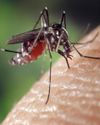
An insight into Chandipura virus in India
Recently lot of news regarding disease due to Chandipura virus has emerged in various newspapers/magazines. After reading the reports published it seems that thing is still brewing in the natures nest and it could affect mankind.

Why elephants never forget?
An elephant has a very large brain for its size and the 'temporal lobe' region responsible for memory is more developed with a greater number of folds - this results in powerful abilities to 'download' important survival data such as where to find food and water, and who is friend or foe.

Use of Algae for Wastewater Treatment Containing Heavy Metals
Wastewater treatment is a critical environmental issue particularly when it comes to the removal of heavy metals.

Nano priming Seeds: A Small Innovation Sparkling Big Advances in Germination
Nanopriming is an emerging agricultural technique where the seeds are treated with nanoparticles to improve their germination, growth, and overall performance.
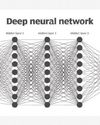
Nobel Laureates in Physics 2024: Revolutionizing AlThe Physics Foundations Behind Machine Learning
This year's two Nobel Laureates in Physics have used tools from physics to develop methods that are the foundation of today's powerful machine learning.
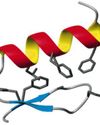
Revolutionizing Biology: The 2024 Nobel Prize in Chemistry Celebrates Breakthroughs in Protein Design and Structure Prediction
The Nobel Prize in Chemistry 2024 is about proteins, life's ingenious chemical tools.
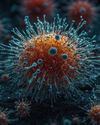
New findings on animal viruses with potential to infect humans
Scientists investigating animal viruses with potential to infect humans have identified a critical protein that could enable spillover of a family of organisms called arteriviruses.

Father-Daughter Team Decodes Mars' Alien Signal
There is no definitive answer to whether aliens exist, but there is a lot of work being done to find out:
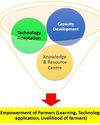
Krishi Vigyan Kendras: Working for Farmer's Welfare
Krishi Vigyan Kendras (Farm Science Centres) are the District level institution serving as an agriculture knowledge resource & capacity development centre which plays indispensable role in front line extension regarding agriculture system in scientific way.

Sixth generation Computer: The future computing technology
We are in a transition towards a digital world, where everything will be dealt with in digital format.